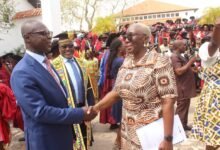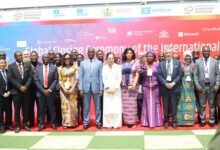Good governance panacea for empowering c’nities–NCCE

Nicholas Atiogbe, the Ledzokuku Municipal Director of the National Commission for Civic Education (NCCE), has observed that good governance, through participation, is the best process for implementing decisions for the benefit of the citizenry.
He explained that good governance should compel the citizenry to promote community ownership of development projects, programmes and policies of the government by increased awareness of operations of local governance and empowering communities.
Mr Atiogbe made the observation at a social auditing programme organised by the NCCE under its Accountability, Rule of law and Anti-Corruption Programme (ARAP) with support from the European Union (EU) for residents of the Ledzokuku municipality.
The engagement was to afford stakeholders an opportunity to participate effectively and efficiently in local governance and to ensure probity, accountability, transparency and rule of law of local government authorities.
Mr Atiogbe urged residents to initiate a social audit committee, comprising representatives of all stakeholders to engage leaders of the communities to demand probity, accountability and transparency from duty bearers so as to improve their livelihoods.
Evelyn Twum-Gyamrah, the Ledzokuku Municipal Chief Executive, applauded the initiative by the NCCE and EU since it would ensure the assemblies were more accountable and transparent to residents and disabuse misconceptions and possible accusations of corruption.
“The programme is beneficial and will promote transparency and accountability by reducing and possibly eliminating levels of suspicions of corruption by tax payers and duty bearers,” she stressed and cautioned that demanding probity, accountability and transparency from government officials ought to be done in a manner that would not create unnecessary tension between both parties.
“The assembly’s commitment, dedication and determination to provision of quality education is unwavering, it has initiated pragmatic measures and resources to remedy infrastructural deficit at all levels,” Mrs Evelyn Twum-Gyamrah assured.
Alex Daunor, a local official of the Ghana Education Service, said as much as quality of education could not be compromised, improving infrastructural deficits in schools in the municipality was also essential.
He identified infrastructural inadequacies, insecurity and encroachment on school lands, tardiness on the part of teachers and pupils, insufficient training on pedagogy and ineffective monitoring and supervision as some challenges affecting quality education and eroding gains in the education sector.
Speaking in turns, after a focus group discussion at the stakeholder engagement, the stakeholders collectively affirmed the importance of education as fundamental in lifting the citizenry out of poverty. –GNA






